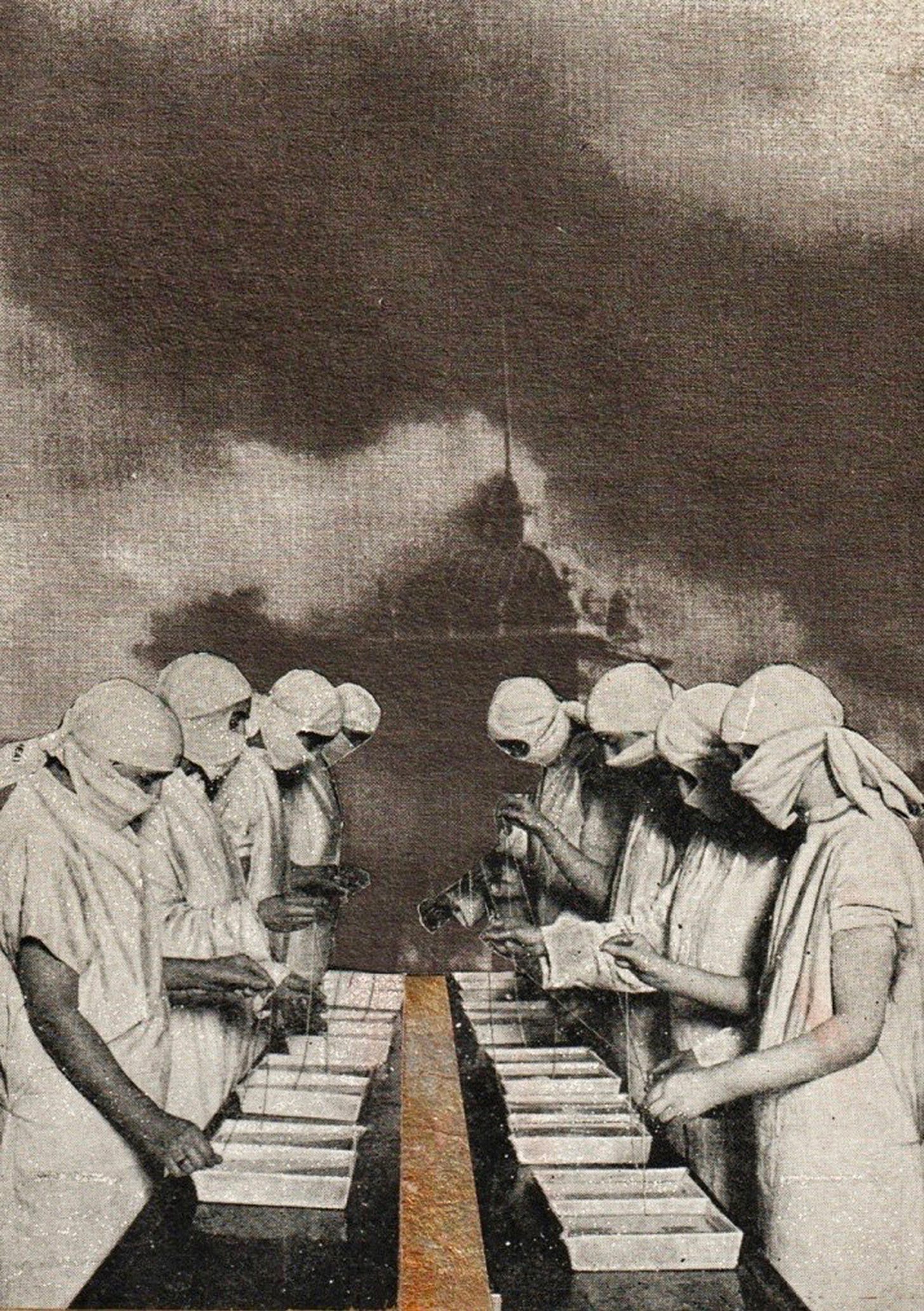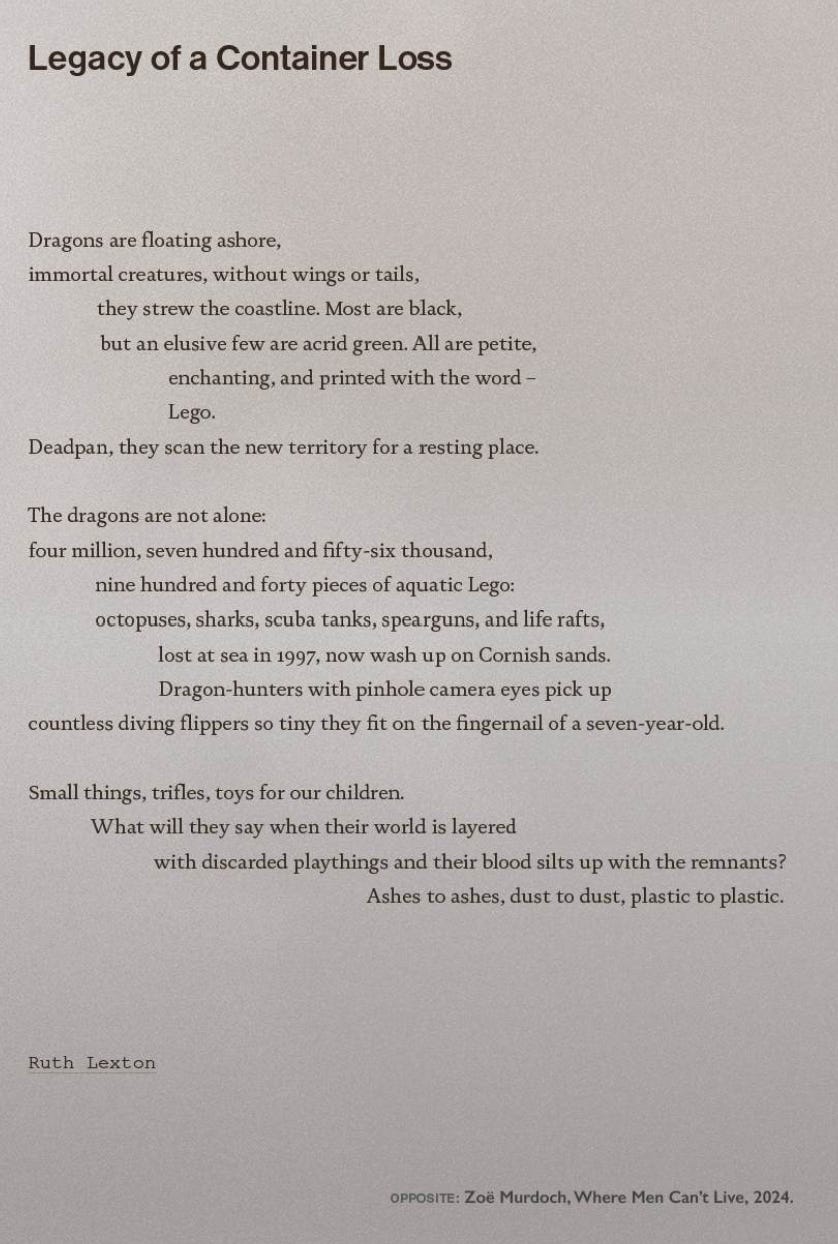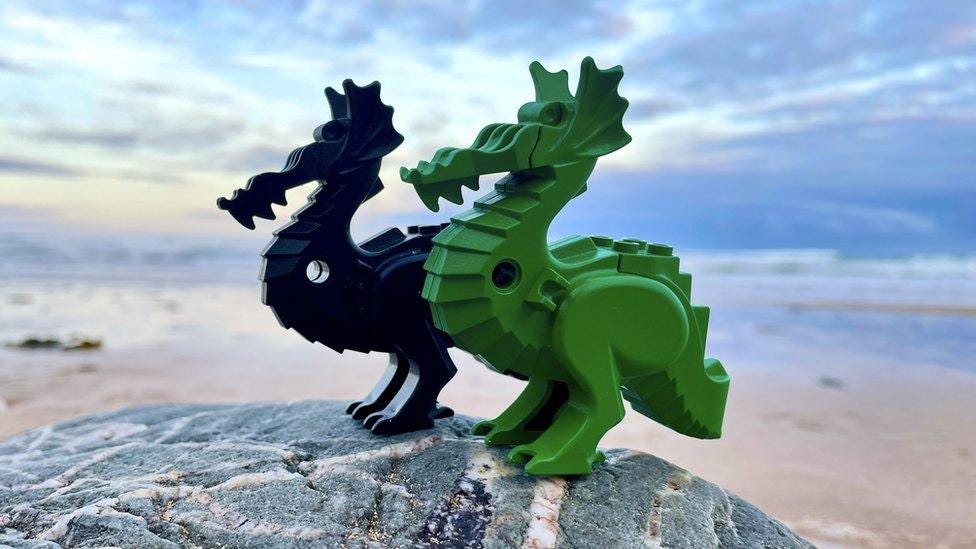Welcome back everyone. After a writing hiatus, I’m delighted to share a new poem with you, recently published in Abridged 0-104: Legion. This brilliant issue muses on the problems of being many, multitude, the host, the faceless crowd and the consequent blurring of edges of responsibility and control.
The spark for this poem was Kathryn Schultz’s brilliant article in the New Yorker, May 2022 on the Tokio Express event and the phenomenon of container shipping. On 13th February 1997, a storm hit the Cornish coast. In the huge waves that resulted, the Tokio Express cargo ship lost 62 containers to the sea. One container held almost five million pieces of aquatic themed Lego. The Lego is still being washed ashore, over a quarter of a century later. In her book, Adrift and her #LegoLostAtSea posts on Facebook, Tracey Williams catalogues the fallout from this event. In 2023, her work contributed to an exhibition in Truro of Lego found by beachcombers.
As a poet, the modern real-life parable of aquatic Lego lost at sea and still being routinely found on beaches was hard to resist. But I have a lot of ambivalence about this poem. Almost ten years ago, I remember reading the words of Robert Macfarlane on the meaning of a new coinage to describe our era, the Anthropocene:
Plastics in particular are being taken as a key marker for the Anthropocene, giving rise to the inevitable nickname of the “Plasticene”. We currently produce around 100m tonnes of plastic globally each year. Because plastics are inert and difficult to degrade, some of this plastic material will find its way into the strata record. Among the future fossils of the Anthropocene, therefore, might be the trace forms not only of megafauna and nano-planktons, but also shampoo bottles and deodorant caps – the strata that contain them precisely dateable with reference to the product-design archives of multinationals. “What will survive of us is love”, wrote Philip Larkin. Wrong. What will survive of us is plastic – and lead-207, the stable isotope at the end of the uranium-235 decay chain.
Robert Macfarlane, “Generation Anthropocene”, The Guardian, 1 April 2016
Somehow the thought of discarded plastic making its way into the geological layers that will define our era in the future is even more shocking to me than the terrible images of wildlife suffocating in a world of plastic waste. Several years after this article was published, a wave of anti-plastic action swept through the UK, fuelled in part by the 2019 BBC mini-series “War on Plastic”. The programme documented the infiltration of plastic into our homes and everyday lives, followed the trail of recycling to rubbish dumps abroad, and challenged ordinary residents to reduce their plastic waste. There was a sudden and visceral reaction in our local community which led to the formation of a voluntary not-for-profit group advocating for a plastic free community and various efforts by many of us to reduce our single-use plastic waste, including switching to refillable products. Less than a year later, the COVID-19 pandemic hit. As we all reached for something, anything to combat the virus, plastic made a comeback, perhaps most painfully represented by the suddenly ubiquitous (and, as it turned out, money-wasting) PPE, but also in household items that went from unnecessary extras to routine items on the shopping list like anti-bacterial wipes. Those of us with young children stuck at home were also buying Duplo, Lego and other plastic toys to keep them amused while we tried to work or manage day-to-day life. The tide of plastic washed back and kept coming.
The last line of my poem riffs on Macfarlane’s powerful rewriting of Larkin. It feels bleak hence, I think, my ambivalence about publishing this piece. I’d like to think that change is possible, that solutions will be found to the overwhelming prospect of an Anthropocene climate changed world but it’s getting harder and harder to hold onto that hope. In the meantime, it must be said, that the dragons are rather beautiful.
I’m dedicating my links list this time around to some of my favourite writers on Substack because reading their posts helped me publish this one.
"Towards Beltaine" from Caroline Mellor at Dreams from the Field
“Process over Product” from Emma Goldman-Sherman at Emma’s Brave Space
“Tiny, Mighty, Yellow, Wall” from Artemisia Writes at Beyond Beauty
“Stuck” from Sara Murphy at Seeing Sh*t in Books







It is so good to see this version of the poem - I love it! I'm so glad it found a home in the world. I'll be traveling to Albany (our state capital) to lobby to ban plastics in early May. There are several new laws on the docket, and I wanted to be part of it, in part inspired by you and this wonderful piece!
Timely and necessary writing. Congratulations Ruth.